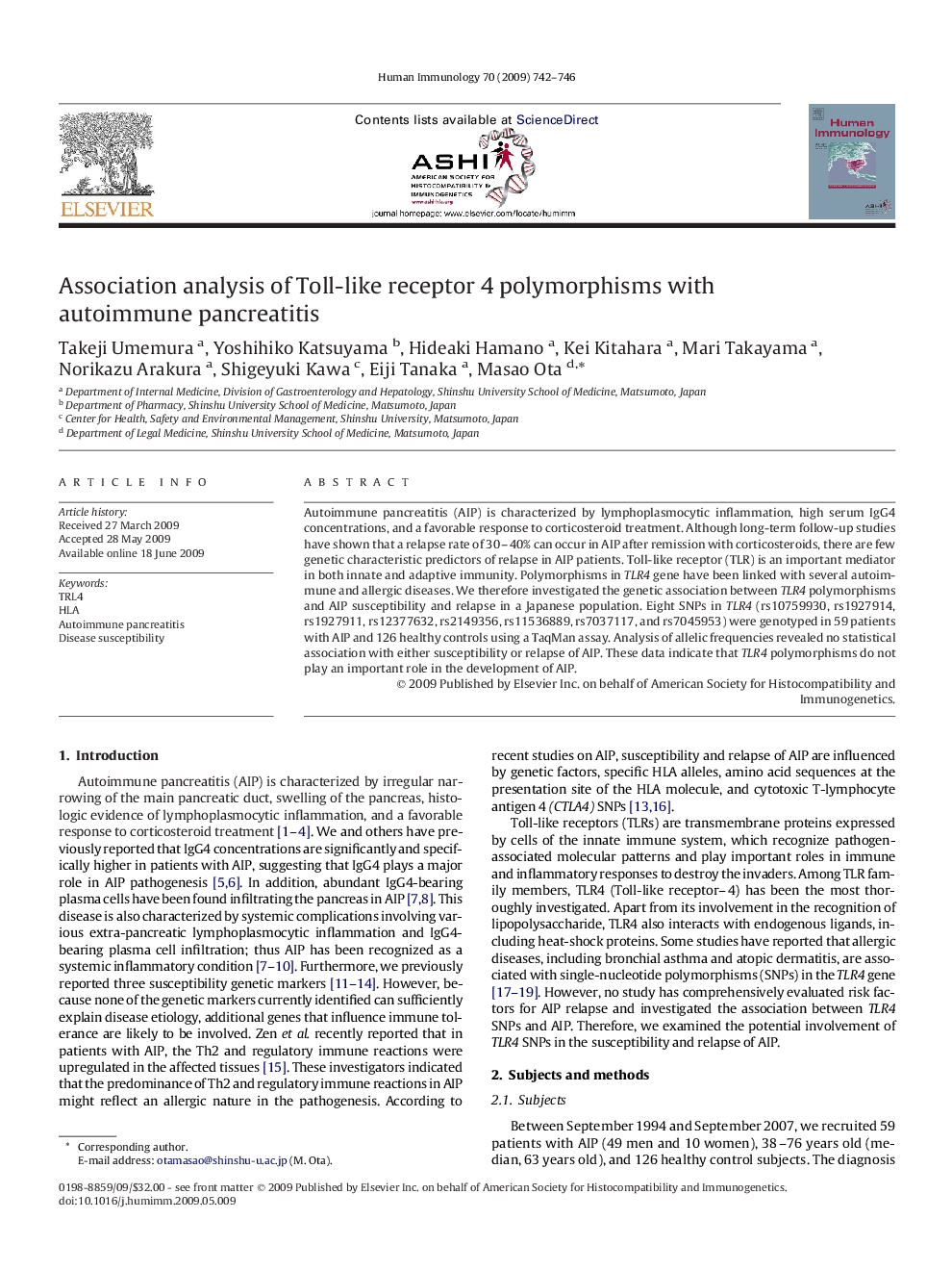| Article ID | Journal | Published Year | Pages | File Type |
|---|---|---|---|---|
| 3352196 | Human Immunology | 2009 | 5 Pages |
Autoimmune pancreatitis (AIP) is characterized by lymphoplasmocytic inflammation, high serum IgG4 concentrations, and a favorable response to corticosteroid treatment. Although long-term follow-up studies have shown that a relapse rate of 30–40% can occur in AIP after remission with corticosteroids, there are few genetic characteristic predictors of relapse in AIP patients. Toll-like receptor (TLR) is an important mediator in both innate and adaptive immunity. Polymorphisms in TLR4 gene have been linked with several autoimmune and allergic diseases. We therefore investigated the genetic association between TLR4 polymorphisms and AIP susceptibility and relapse in a Japanese population. Eight SNPs in TLR4 (rs10759930, rs1927914, rs1927911, rs12377632, rs2149356, rs11536889, rs7037117, and rs7045953) were genotyped in 59 patients with AIP and 126 healthy controls using a TaqMan assay. Analysis of allelic frequencies revealed no statistical association with either susceptibility or relapse of AIP. These data indicate that TLR4 polymorphisms do not play an important role in the development of AIP.
